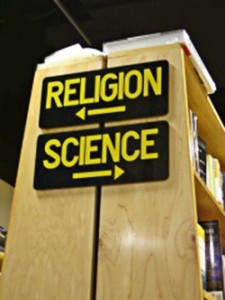Reason seeks for truth that it can prove. Religion, some say, asks us to believe things that can’t be proved. But why is it assumed that a search for truth is worthwhile? Why is the truth good? By inference, what is bad about untruth? Are we not making a faith decision? That truth is better than untruth?
 This scientific age, based on provable truths, brings us untold medical advances. It also brings us moral dilemmas. An individual facing the decision of when to “pull the plug” on life support systems for a loved one may wish for days when the seriously ill could not be kept alive almost indefinitely.
This scientific age, based on provable truths, brings us untold medical advances. It also brings us moral dilemmas. An individual facing the decision of when to “pull the plug” on life support systems for a loved one may wish for days when the seriously ill could not be kept alive almost indefinitely.
The industrial age allows unprecedented material advantages. It also allows pollution and ecological damage, especially as millions more in countries like India and China enter a more developed stage and seek trappings of the middle class life. We aspire to a lifestyle that strains our resources. As those scarce resources become more expensive, class differences tend to increase. How we deal with issues like the environment and inequality requires faith choices. Hopefully, we reason as far as we have evidence, but eventually we jump off in faith.
Once in a while, a scientist lies, or twists his findings for his own advancement or simply from carelessness. Reason, apparently, doesn’t eradicate all selfishness and mistakes.
Reason is a wonderful gift, but faith provides a different guidance, related to purpose and meaning.

